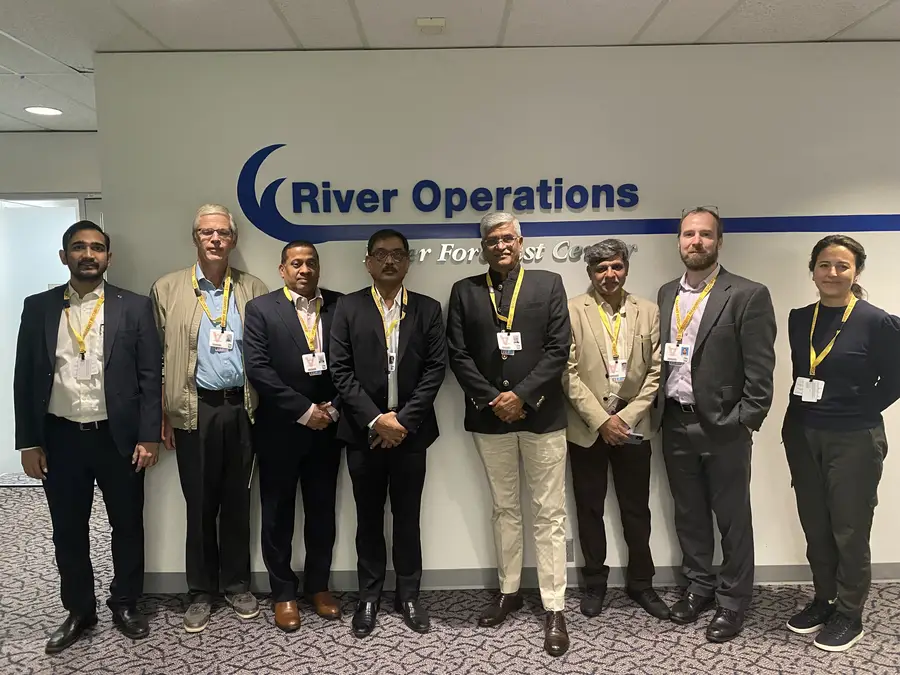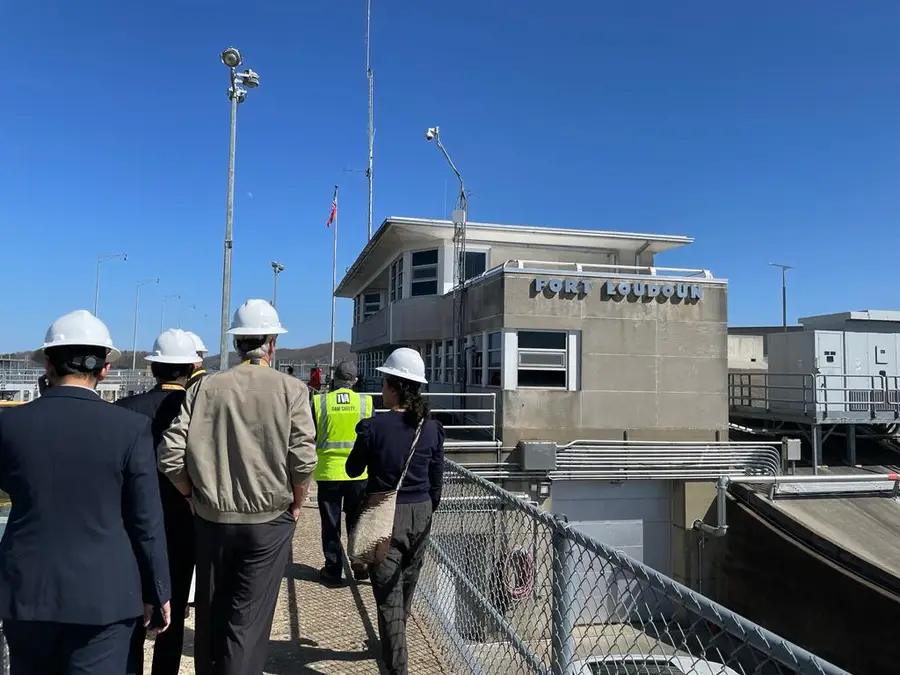India's Honorable Minister Gajendra Singh Shekhawat and his staff join colleagues from the World Bank and RTI International at Tennessee Valley Authority (TVA) in Knoxville, Tennessee.
Water security is taking an increasingly important role as global leaders act to protect the safe, reliable, and sustainable use of water. RTI, in partnership with the Tennessee Valley Authority (TVA) and the World Bank, recently hosted India’s Honorable Minister of Jal Shakti (Water), Gajendra Singh Shekhawat, in Knoxville, Tennessee. We were also joined by our colleagues from RTI International India, whose work with the Indian government and other partners on water, sanitation, and hygiene underscores the worldwide drive for improved water systems. It was an eventful day for U.S.-India relations, as U.S. Secretary of State Antony Blinken was in Delhi meeting with the Indian Minister of External Affairs.
This event served as an opportunity to advance transnational dialogue and action in pursuit of global water security. This builds on shared strategic objectives between member nations of the Group of Twenty (G20), which India currently hosts and presides over, and the European Union (EU). One of the most pressing priorities not just for India, but the globe, are food and water security.
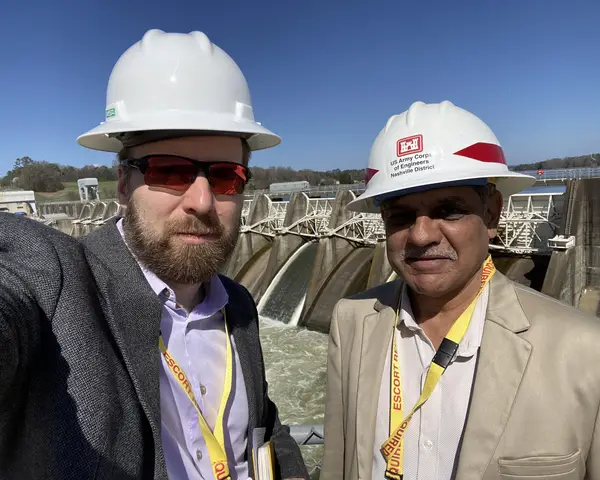
The Hon. Minister's mission to TVA was aimed at knowledge exchange around basin-level water management. TVA manages 49 dams within the Tennessee Valley river basin that support numerous multisectoral water management objectives. Beyond just producing clean and renewable hydropower, TVA also oversees flood control management, supports the development of navigable riverway shipping channels, aims to produce recreational and ecological benefits, and provides cooling waters for thermal and nuclear power facilities. With a watershed covering seven states and multiple competing uses of managed water resources, TVA must evaluate tradeoffs for decision-making to balance the needs between states and riparian beneficiaries using the best available real-time and forecasted data.
How India is Changing Water Management Practices
Through programs such as the World Bank's National Hydrology Project (NHP), and the $1B USD Dam Rehabilitation and Improvement Project (DRIP-2 & DRIP-3), India’s Ministry Jal Shakti Ministry is in the process of changing how water is monitored and managed in the country, and TVA is a model example of basin-level water management centered on safely benefiting local communities. Despite the geographical distance, both India and TVA face similar challenges around water management and can benefit from shared dialogue around multi-sectoral water management. As such, the sharing seminar and dam site visit during the Hon. Minister’s time at TVA served as an opportunity to further water security objectives in both India and the United States.
An example of India changing water management practices and setting best practices for global water security includes the recent establishment of a newly dedicated university level dam safety program at the Indian Institute of Technology Roorkee (IIT-Roorkee) funded through DRIP-2. This new program will focus on educating an emerging cadre of dam safety specialists to support inspections, operations, rehabilitation, and risk assessments.
With the third largest number of dams in the world according to the International Commission on Large Dams, a new dam safety bill passed in 2021, and a population projected to exceed China's this year with significant water resource demands, dam safety is a top priority for India. India recognizes the importance of dam safety not just for the protection of downstream communities, but also for the critical benefits provided by managed water storage behind dams for irrigation and water supply, especially with ever-increasing demand and a finite supply.
Fort Loudoun dam tour.
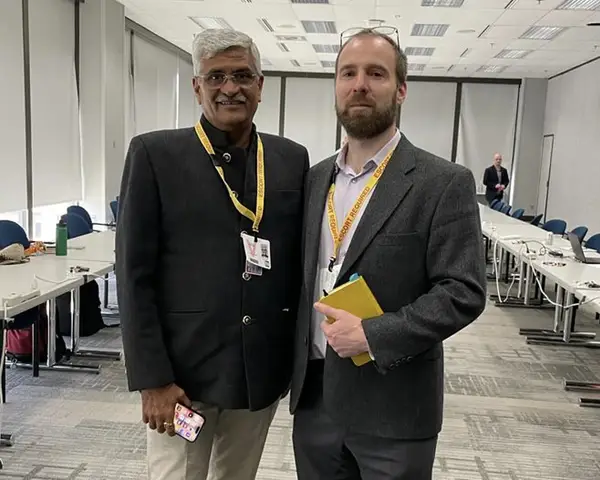
The Connection Between Water Management and Climate Change
The relation of the Minister's mission to TVA to the pursuit of G20 global priorities is also significant, especially given its concurrent alignment with the World Bank's Water Week in Washington D.C., which has further emphasized the importance of water management in the face of climate change and the need for investment in global water storage. The Honorable Minister provided remarks during the World Bank Water Week opening session highlighting the importance of integrated water management for economic growth and security, including water storage for increasing resilience to both floods and droughts. The World Bank furthered this message with a recently released report on decreasing global water storage.
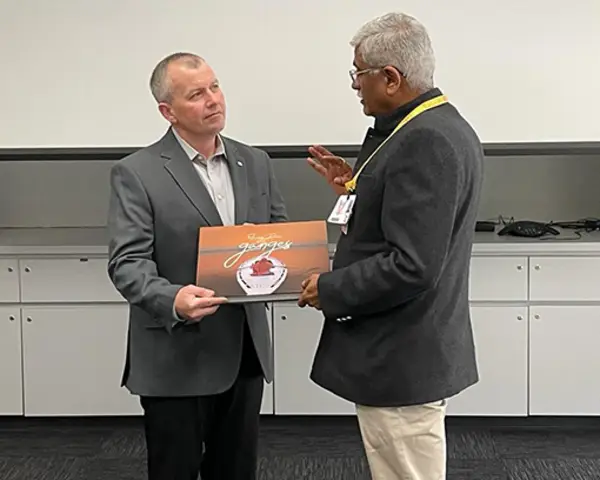
Given global climate change, the present moment demands proactive action on global economic, food, energy, and water security. Fortunately, collaborative efforts on G20 objectives, transnational exchanges such as the Hon. Minister's visit to TVA, and important global programs being led by the World Bank and supported by RTI are leading the charge on responding to these critical issues.
Only through shared knowledge and further strengthening future leaders' capacity for action will the world become more resilient to the current and emerging challenges of water security. The Minister's mission to TVA has further contributed to this critical global dialogue in pursuit of a more sustainable present and future for food and water security.


